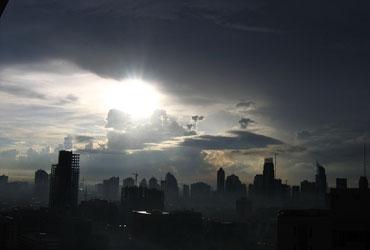
Private companies have sprung up in the localised weather forecasting segment.
The market, however, is still small, with only two players in the pure weather forecasting space.
As the India Meteorological Department continues to falter on its long-range monsoon forecast over a wide geographical area, there is an increasing need for localised weather forecasts, customised to the needs of consumers.
In its annual monsoon forecast this year, the IMD had stated rains would be normal. However, after the deficient rains till July-end, it changed its monsoon forecast to 'deficient'.
Since then, however, the situation has transformed completely, with rains just five per cent below normal.
. . .
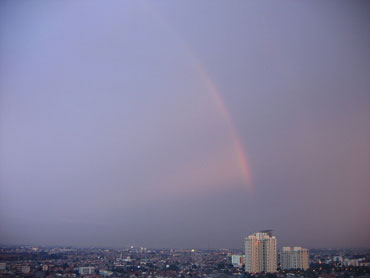
Also, the agency wasn't able to predict rainfall deficiencies in small regions such as Saurashtra and Kutch.
Experts say in India, the market for localised weather forecasting is still small -- about Rs 10-20 crore (100-200 million).
They add it comprises only two players Skymet and Express Weather (which are into pure weather forecasting).
However, the market has been growing steadily, with major global private forecasters like Foreca and AccuWeather now eying Indian market.
The global weather information market is estimated at $6 billion.
This includes entities that disseminate forecasts available from various sources, through multiple platforms.
. . .

Industry sources say in the US, there are about 400 private weather forecasting companies, excluding NASA, NOAA and the US Navy (which has a strong meteorological unit).
"In the US, the government gives funds to private companies to develop their own forecasting models and provides inputs to operationalise that model to ensure end-users get a perfect product," said Angshujyoti Das, chief executive of Express Weather.
How the model works
As Jatin Singh of Skymet Weather Services says, private weather companies have their weather stations spread across the country.
These stations have facilities to monitor temperatures, wind speeds, remote sensing, etc. Data is also sourced from sources available to the public.
This is then fed into a customised model to generate region-specific information on wind speed, rain, humidity, etc.
. . .
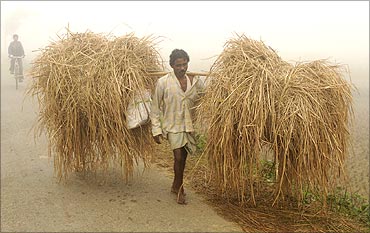
Skymet has about 300 such stations across the country.
In some cases, forecasters buy classified weather information (such as information from satellite images and radars) from global agencies.
"In the case of Express Weather, we saw the numerical models currently available were mostly tailor-made for the US.
Hence, we joined hands with Jadavpur University in West Bengal to develop our own forecasting model.
The data we receive from various sources, including our 185-odd weather stations, is fed into these models and the results generate location-specific weather information," Das said.
He added the more data available, the better would be the end information.
"We have developed separate algorithms (forecasting models) for the Mumbai weather, the fog in Delhi, the seasonal rainfall over Madhya Pradesh, etc," said Jatin Singh said.
. . .

Dissemination
Once the data is generated, it is disseminated through various platforms such as mobiles, internet, etc, according to the needs and demands of clients.
In some cases, weather information for special segments such as wind energy companies is generated and transmitted to these.
Tied with weather forecasts are also value-added services like advisory on crop conditions, diseases and pests for agriculture.
"We always knew providing information on weather conditions in a localised format was just not enough.
Hence, we started giving its implications as well. For this, we joined hands with National Research Centre for Grape, which gave customised services up to the block level," Das said.
. . .
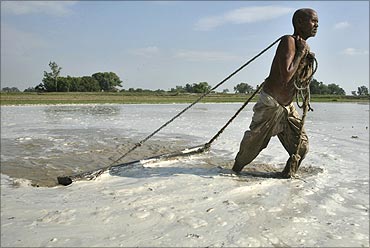
He added Express Weather also helped pesticide companies and fast-moving consumer goods firms like PepsiCo provide customised weather information to farmers.
Skymet has tied up with companies such as Nokia, Reuters Market Light, Bayer and Monsanto, as well as major energy companies, to provide customised weather solutions to farmers and other clients.
"We give the data and the clients process this and distribute it through various platforms. In some cases, we cater to customers directly," Singh said.
The platform
The private weather forecaster's job isn't limited to forecasting weather conditions over a specific area.
It has to look for modes through which to disseminate the information gathered, too.
. . .
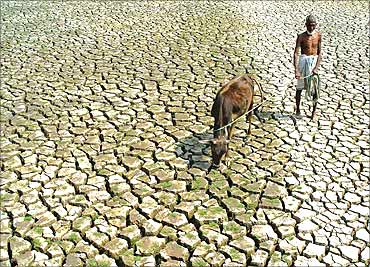
In the case of Skymet, the information is largely distributed through short-messaging services to a host of users like mobile companies, TV channels, etc.
Express Weather relies on the internet, SMSes and smart phone applications to spread the information.
Private weather forecasting companies started operations in India in 2003; Skymet was the first on the block.
Express Weather began operation in 2007. Since then, there have been various attempts at weather forecasting, but very few private weather stations have come up.
"The law says companies that provided weather insurance could not set up weather stations.
"Hence, such companies started looking for entities that could provide weather forecast at a localised scale," Das said.
. . .

Challenges
The private weather forecasting business might be growing, but questions on credibility remain.
Ajit Tyagi, former IMD director general, says though globally, private weather forecasting agencies are credited by different agencies, in India such a system does not exist.
"This is not a regulated market; it works on the theory of demand and supply.
Till the time both clients and service provider are satisfied, it is fine.
But if one expresses disappointment with the service, the government would have to step in," he adds.
However, he agrees the scope for private weather forecasting agencies in India is immense.
"IMD makes large-scale forecasts.
"But it simply does not have the manpower or resources to customise weather forecasts and cater to the needs of individuals or groups.
"It is here that these companies can come in, with value-added services. But the market needs to be regulated," he says.